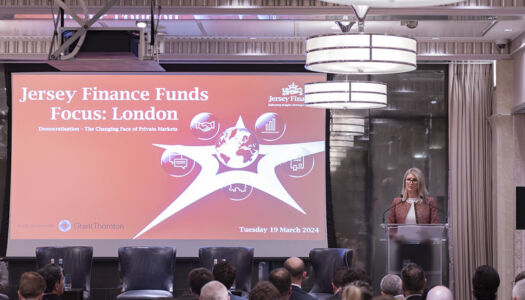Looking back into the past is not something I like to do very often, but sometimes it does provide some food for thought as to how we’re performing as a jurisdiction and how we benchmark ourselves.
With that in mind, it’s interesting to note just how significant a year 2009 was. It was ten years ago this month (April 2009) that the G20, following its summit, confirmed that it considered Jersey to be in the top tier of jurisdictions globally in terms of transparency and regulation. Shortly after, the OECD published its landmark ‘white list’ of jurisdictions – a list including Jersey and 39 other countries around the world that confirmed that, when assessed against global standards, Jersey was found to be a cooperative and responsible jurisdiction.
The same year, the UK Treasury highlighted and commended Jersey for its commitment to transparency, cooperation and information exchange, calling for others to follow its lead, whilst a major report by the IMF gave Jersey a ringing endorsement, finding that Jersey was in the ‘top division’ of IFCs in terms of supervision and regulation, ahead of a number of EU and G20 countries.
It’s also the same year the Foot Review was published, which pointed to the high standards Jersey holds itself to and made clear its positive contribution to the UK economy.
2009 was a significant year, but it is to Jersey’s credit as a forward-thinking jurisdiction that it didn’t sit on its laurels at the time but continued to look at ways to advance its position and engage positively with the international community. In fact, since 2009, what we have achieved as a jurisdiction and how we responded and reacted to market conditions and changing attitudes towards financial services is incredibly impressive.
Not only did we set out a strategic vision off the back of the global financial crisis that sought to enable us to diversify and grow as an industry, we also looked to build on our credentials. Along the way, that earned praise for our standards of governance, our approach to information exchange, our model of beneficial ownership, and our commitment to driving innovation and insights.
Indeed, thought leadership and research is one area where we have really excelled compared to other IFCs. Today, we have built up a library of more than a dozen pieces of independent research that illustrate how IFCs like Jersey work, for instance, to support global trade, create jobs in the UK and Europe and enable investment in infrastructure in developing economies. It’s important because we believe that big decisions should be made based on facts.
A decade on almost to the day, and Jersey has been deemed once more, this time by the EU, to be a cooperative jurisdiction. It’s fantastic news, of course, and reinforces our belief that we play a positive role in the global financial system, providing sensible, sophisticated solutions to real global challenges – ultimately getting capital securely and efficiently to where it is needed most, to invest in infrastructure, businesses and people, creating wealth, jobs and success for the many, not the few.
The fact that international bodies have to resort to blacklists at all is a shame – from Jersey’s perspective, the regular assessments we have gone through over the past ten years should amply demonstrate our clear commitment to leading the way as an IFC – anyone that knows Jersey at all will appreciate the emphasis we place on best practice, excellence and high standards. And we do that not to avoid being on a blacklist, but because we believe fundamentally in doing what is right.
It is frustrating at times that the rhetoric around international finance since 2009 doesn’t seem to have matured quite as much.
Part of this is, of course, politics – the global financial crisis prompted governments faced with huge public deficits to make voter-pleasing promises of retrieving vast sums of money allegedly lost through tax avoidance. Only, those promises have been shown to be untrue, particularly in the case of the Crown Dependencies, with a disclosure facility around five years ago recovering only a quarter of what the UK government promised.
But it’s also a manifestation of public mistrust in business, media and governments more widely.
Disappointingly, still today we see allegations casually and irresponsibly thrown around about IFCs based on historic data, figures that confuse and conflate, and statistics that don’t differentiate between different centres.
Debates in the UK around the effectiveness of public registers are a case in point, with backbenchers pushing for them whilst presenting no credible evidence whatsoever of any wrongdoing in Jersey – in fact, the track record I’ve outlined over the past ten years, coupled with the fact that Jersey now exchanges information with 100 countries around the world, would suggest quite the contrary.
Which is why, as a responsible IFC that believes it has a positive role to play in the future of global financial markets, we need to do more to provide clarity around these issues. These are important times for global trade and vital decisions are likely to be made in the coming years that will impact us all. That’s why we’ll continue to trumpet the value of basing decisions on facts, not spurious allegations, unfounded data or misguided assumptions.
In Jersey, we’re ready to work with anyone who wants to understand the reality behind what we do because ultimately, if we are all to succeed, it must be facts, evidence and statistics that inform our future path, over the next ten years and beyond.




